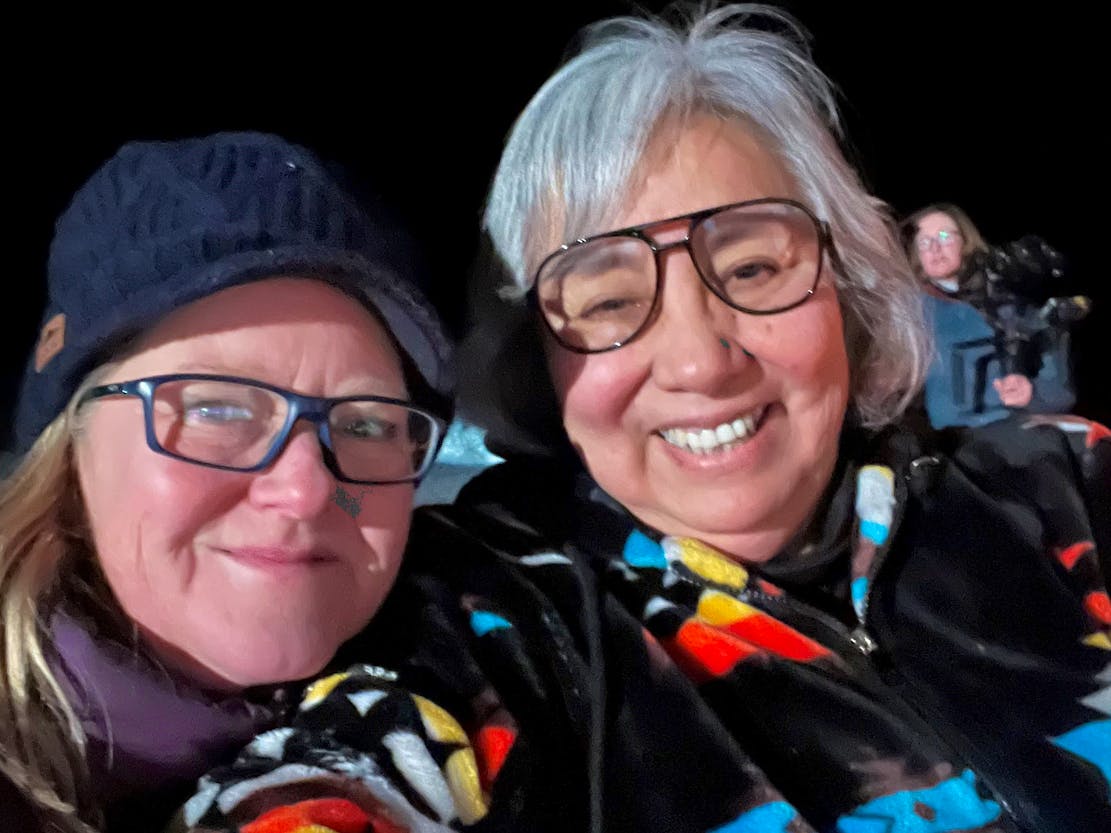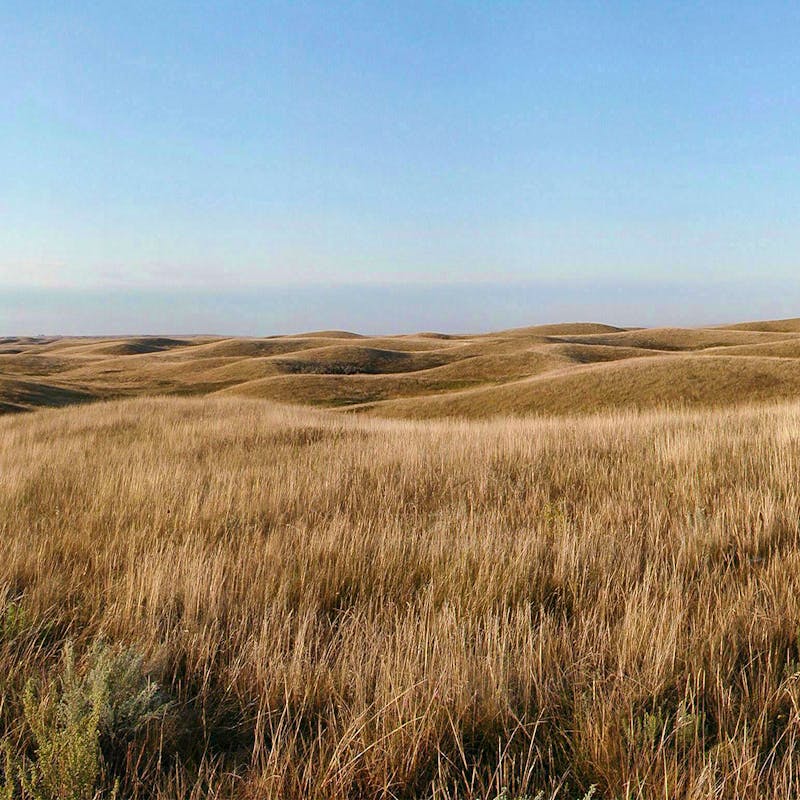In the early morning light of the shortgrass prairie, the hunters gather: sipping coffee, wrapped in blankets, setting out a buffet of assorted food, drinks and dishes. The elderly sit on folding chairs while the younger men sit on the ground in a circle laughing, teasing and joking. Suddenly, all are silent. The Ceremony is beginning. The smell of sage — the incense for purifying and focusing one’s mind toward the purpose of prayer — permeates the crisp, chilly air. Each participant is brought the smoke to smudge themselves. The prayer begins and the pipe is shared. Four times the men smoke and pass the pipe. A rifle is brought forth and smudged. A small eagle feather is tied to it with red cloth.
The prayer asks for safety throughout the hunt, for the hunter’s aim to be true and for the kill to be clean so our buffalo relative does not suffer needlessly. Tears flow. This is my younger sister’s only son’s first buffalo hunt. Since the Tribe began its cultural harvests, we have had six family members lucky enough to win a harvest through the tribal lottery. Prior to these harvests, it had been nearly 150 years since our ancestors had the opportunity to hunt buffalo to feed our families.
The return of the buffalo to the Fort Peck Tribes is a revitalization and restoration of not only the prairie but also the Tribal people.
This animal has excited a Tribal interest in learning about conservation, language, ceremony, ritual and food sovereignty within the community. The Fort Peck Tribes donate a buffalo for education to each of the four schools on the reservation, two border town schools, the community college and numerous other entities. Annual school hunts have inspired student films documenting their experience, which are then shared widely with friends, relatives and the world on YouTube. The school hunts also allow students to “gift” their elderly and those in need in their community with meat.
The buffalo’s presence alongside the Fort Peck Tribes is very healing to Tribal people. Combat veterans find catharsis through ceremony and the ritual hunt. Head Start children gasp in awe as they touch the contents of the Buffalo Box, made of buffalo hide and used to contain artifacts of Ceremony. When out in the field, the students often giggle with delight as they tour prairie land with the “buffalo cops” (game wardens) to see baby buffalo in the spring. Tribal members living in urban areas reconnect with their reservation relatives, celebrate renewing family ties and cement the reconnection with the prayers and rituals associated with the hunt.
All these amazing experiences are felt in pockets throughout Indian Country in one form or another. Defenders helps facilitate the transfer of buffalo from Yellowstone National Park to Fort Peck, which serves as home base for the InterTribal Buffalo Council to then transfer animals to Tribes throughout the U.S. This partnership not only provides for the re-introduction of the species, but it is also a catalytic event. An event that is transforming to the land, people and spirit of the Buffalo. These animals are our family members, a keystone species, transformers of society, and are key to spiritual and religious awakening which makes us whole again. It is amazing what the reintroduction of one large ungulate herbivore can accomplish!
This blog was written by Jonny BearCub Stiffarm of the Assiniboine and Sioux Tribes of Fort Peck .









Follow Defenders of Wildlife
facebook bluesky twitter instagram youtube tiktok threads linkedin